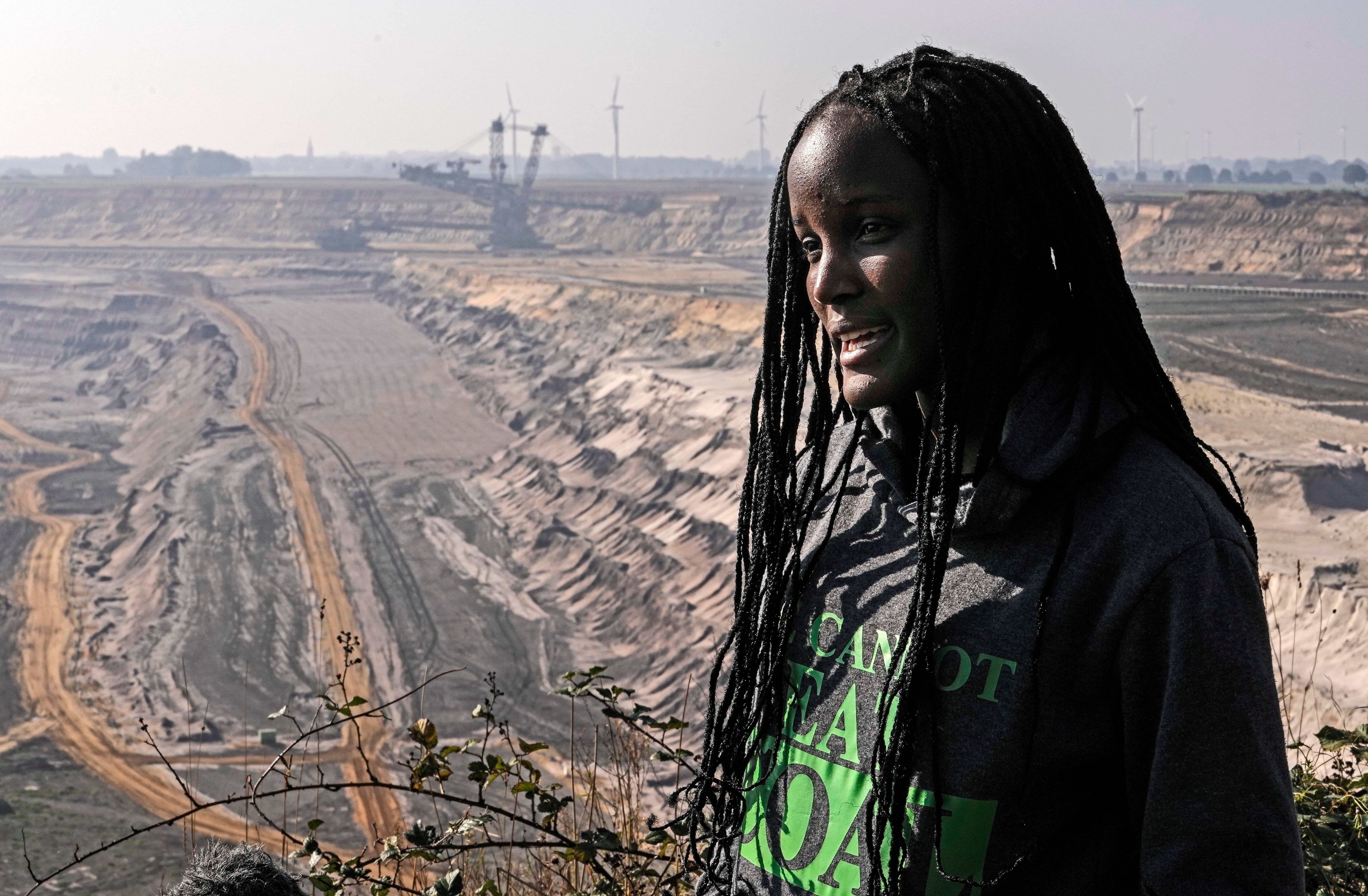Climate activist Nakate visits huge German coal mine
Ugandan climate activist Vanessa Nakate has visited a vast open-pit coal mine in Germany and a village that is to be bulldozed to make way for its expansion

Your support helps us to tell the story
From reproductive rights to climate change to Big Tech, The Independent is on the ground when the story is developing. Whether it's investigating the financials of Elon Musk's pro-Trump PAC or producing our latest documentary, 'The A Word', which shines a light on the American women fighting for reproductive rights, we know how important it is to parse out the facts from the messaging.
At such a critical moment in US history, we need reporters on the ground. Your donation allows us to keep sending journalists to speak to both sides of the story.
The Independent is trusted by Americans across the entire political spectrum. And unlike many other quality news outlets, we choose not to lock Americans out of our reporting and analysis with paywalls. We believe quality journalism should be available to everyone, paid for by those who can afford it.
Your support makes all the difference.Ugandan climate activist Vanessa Nakate on Saturday visited a vast German open-pit coal mine and a village that is to be bulldozed for its expansion, saying the destruction is “really disturbing” and has implications far beyond Germany.
The visit by Nakate and other young climate activists comes a few weeks before U.N. climate talks open in Glasgow Scotland on Oct. 31.
The Garzweiler lignite mine, operated by utility giant RWE has become a focus of protests by people who want Germany to stop extracting and burning coal as soon as possible. Activists and local residents say expanding the mine runs counter to Germany’s goal of reducing greenhouse gas emissions to meet the Paris climate accord’s target of capping global warming at 1.5 degrees Celsius (2.7 Fahrenheit).
They also oppose the destruction of villages such as Luetzerath and nearby woods to make way for the mine. Coal mining is due to end in Germany by 2038, but environmentalists say it needs to stop much earlier.
“I came to see how much destruction is being done in Luetzerath with the coal mine and to see how much of this destruction is not just affecting the people in this place, but also the people in my country, Uganda,” Nakate told The Associated Press.
Because of rising global temperatures, “the weather patterns are changing in my country and we are experiencing more extreme rainfall and extreme droughts,” she said.
“With the expansion of this coal mine, it means people’s cultures will be destroyed, people’s traditions, people’s histories of this place," Nakate said.
Noting the mine's size and its implications for greenhouse gas emissions, she added "it’s really disturbing to see how much destruction is taking place.”
German activist Leonie Bremer said “it’s absurd that my friend Vanessa has to come here from Uganda to show people that what we are doing here in Germany, that what RWE is doing here, that’s affecting countries like Uganda.”
___
Follow AP’s climate coverage at http://www.apnews.com/Climate